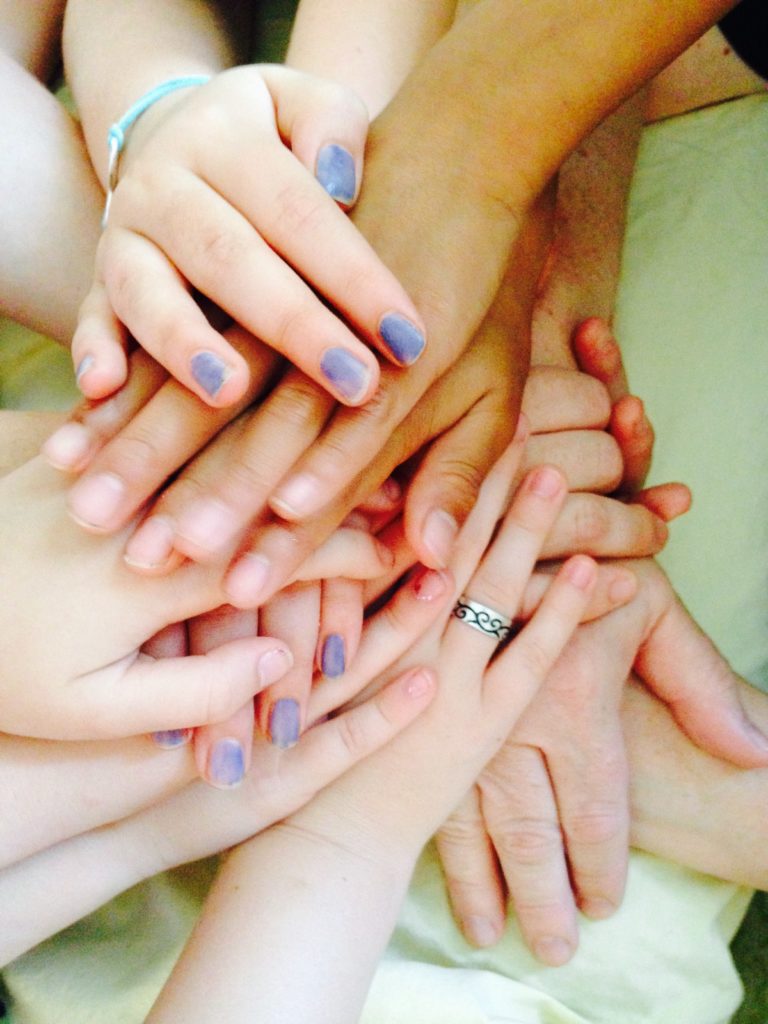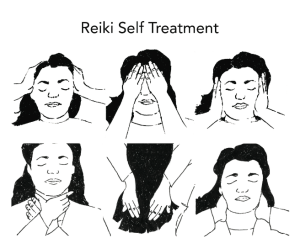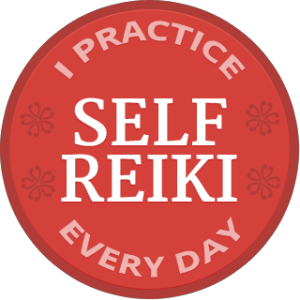
During my Reiki 1 class at Kripalu Center, my teacher, Libby Barnett, when asked whether we directly touch the recipients of a Reiki session or hover in their energy field, responded,
“We’re a touch-starved culture. There are benefits from the direct touch in addition to the Reiki.”
She went on to talk about how touch is regulated and minimized in schools, for instance, and how that impacts connection between students and teachers. She discussed how touch relates to emotional intimacy in our families. As a social worker, she knows a lot about this subject and her authority and wisdom became deeply ingrained in me and all of her students that auspicious week in October 2001.
But now, here we are in isolation. I haven’t seen a client in person in 17 days. I shut down my in person practice a week before the shelter in place orders for Illinois in order to practice physical distancing.
I’ll make an assumption here, that you, as someone interested in, or a practitioner of Reiki, dearly miss the hands-on practice of Reiki.
My heart is with you.
My heart grieves with you the loss of touch.
I invite you to put your hands on your heart.
To feel the energy that is in you and all around you.
That is Reiki.
Do this every day, multiple times a day. Notice your breath. Notice the warmth from your hands. Appreciate the physical touch.
You are safe.
You are calm.
You are Reiki.
______________________________________________________________________
Please know that my daily distance Reiki is being sent to you and the wider world for healing and peace.

 Last month, I completed my second half marathon. It was a different challenge for several reasons. Some were known ahead of time; some were not.
Last month, I completed my second half marathon. It was a different challenge for several reasons. Some were known ahead of time; some were not. There’s a reason why as soon as you’re attuned in a
There’s a reason why as soon as you’re attuned in a  Sometimes I wake up at 3:30 a.m. and can’t fall back to sleep. Does this type of insomnia ever happen to you? Is it a crisis for you? Do you lie in bed waiting for the alarm to go off or the sun to come up? Are your first thoughts? “I’m awake already??!! This is going to ruin my day.”
Sometimes I wake up at 3:30 a.m. and can’t fall back to sleep. Does this type of insomnia ever happen to you? Is it a crisis for you? Do you lie in bed waiting for the alarm to go off or the sun to come up? Are your first thoughts? “I’m awake already??!! This is going to ruin my day.” If you’ve taken a Reiki level 1 class hopefully you’ve been taught how to have a self-Reiki practice. This practice usually entails a regular practice at the beginning and end of each day plus regular applications of self-Reiki throughout one’s day. There are particular hands-on positions that one follows (some of them are illustrated in the image on the right) or the practitioner uses a free-form approach.
If you’ve taken a Reiki level 1 class hopefully you’ve been taught how to have a self-Reiki practice. This practice usually entails a regular practice at the beginning and end of each day plus regular applications of self-Reiki throughout one’s day. There are particular hands-on positions that one follows (some of them are illustrated in the image on the right) or the practitioner uses a free-form approach.
 I’m startled sometimes by the harsh words that people use when talking about themselves. These are people who I know would not speak that way to another person, but they feel completely comfortable using words of disgust, hatred, and criticism towards themselves. When speaking of another person they often find a good side to that person’s personality or behavior, but when they speak of themselves extreme criticism is the norm.
I’m startled sometimes by the harsh words that people use when talking about themselves. These are people who I know would not speak that way to another person, but they feel completely comfortable using words of disgust, hatred, and criticism towards themselves. When speaking of another person they often find a good side to that person’s personality or behavior, but when they speak of themselves extreme criticism is the norm. family, friends, coworkers. As parents, we practice how to parent with mindful words and actions. At our workplace, we practice our craft over and over again through the repetition of the tasks that we complete on a daily or weekly basis. Even driving or walking is a practice — we do it repeatedly and gain greater skill in it by doing it over and over again. Keep thinking about this — anything we do is a practice and we gain skill through the act.
family, friends, coworkers. As parents, we practice how to parent with mindful words and actions. At our workplace, we practice our craft over and over again through the repetition of the tasks that we complete on a daily or weekly basis. Even driving or walking is a practice — we do it repeatedly and gain greater skill in it by doing it over and over again. Keep thinking about this — anything we do is a practice and we gain skill through the act.